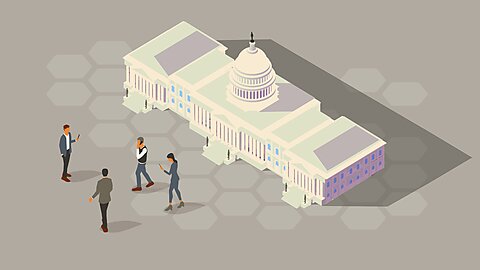It has been more than seven months since Donald Trump took office as president, and the Senate still hasn’t held confirmation hearings for his nominee for surgeon general, Casey Means, MD. Dr. Means is a controversial choice because, despite her Stanford credentials, she never completed a residency, doesn’t hold a current medical license, and promotes trendy but unproven wellness claims that alienate both public health traditionalists and parts of the anti-establishment right.
If confirmed, Dr. Means would not be the first controversial surgeon general. In recent decades, surgeons general have undermined their intended role as public health officials by inserting themselves into issues that extend far beyond the classical liberal conception of “public health”: protecting people from harms like infectious disease and pollution that they didn’t consent to. Instead, they’ve used taxpayer dollars to weigh in on everything from media violence, pornography, and education to poverty, guns, and inequality—and more recently, on parenting, labor, loneliness, and social media—often supporting new regulations, subsidies, and gun control laws. Some of these issues relate directly to personal health; many barely do.
With the eventual surgeon general confirmation hearings sure to stir heated and divisive arguments, it would serve the public well if Congress were to ask, “Why does the United States have a surgeon general?” and “Does the country even need one?”
These questions aren’t just rhetorical. In “Unnecessary Relics: The Surgeon General and the Public Health Service Commissioned Corps,” a new Cato policy analysis released today, Michael Cannon, Akiva Malamet, Bautista Vivanco, and I examine the surprising evolution—and overreach—of the surgeon general and the Public Health Service Commissioned Corps.
What began in 1798 as a civil servant role overseeing merchant marine hospitals has become a politicized platform and a 6,000-member uniformed corps that deploys slowly, duplicates civilian functions, and operates outside traditional public health. Presidents have eliminated the office before. Maybe it’s time to do so again.
We concluded that both the surgeon general and the Commissioned Corps burden taxpayers, reduce accountability, and ultimately undermine public health. Eliminating both and shifting necessary functions to other agencies would improve both public health and the federal budget.
The HHS website calls the surgeon general “the nation’s doctor.” But after reading our report, Congress might agree with Humble Pie: the nation “don’t need no doctor”—and it doesn’t need the doctor’s staff, either.












